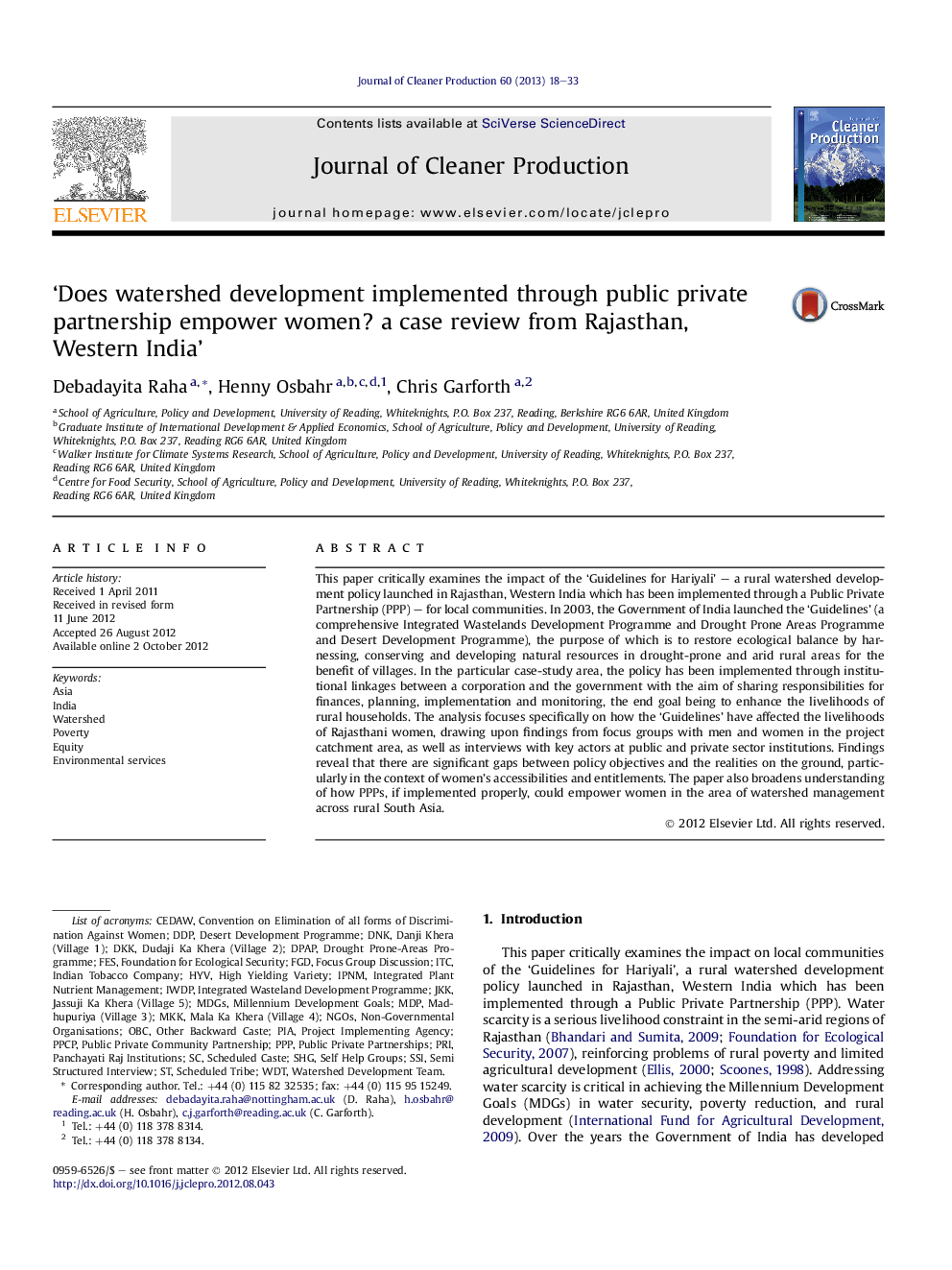| Article ID | Journal | Published Year | Pages | File Type |
|---|---|---|---|---|
| 8107160 | Journal of Cleaner Production | 2013 | 16 Pages |
Abstract
This paper critically examines the impact of the 'Guidelines for Hariyali' - a rural watershed development policy launched in Rajasthan, Western India which has been implemented through a Public Private Partnership (PPP) - for local communities. In 2003, the Government of India launched the 'Guidelines' (a comprehensive Integrated Wastelands Development Programme and Drought Prone Areas Programme and Desert Development Programme), the purpose of which is to restore ecological balance by harnessing, conserving and developing natural resources in drought-prone and arid rural areas for the benefit of villages. In the particular case-study area, the policy has been implemented through institutional linkages between a corporation and the government with the aim of sharing responsibilities for finances, planning, implementation and monitoring, the end goal being to enhance the livelihoods of rural households. The analysis focuses specifically on how the 'Guidelines' have affected the livelihoods of Rajasthani women, drawing upon findings from focus groups with men and women in the project catchment area, as well as interviews with key actors at public and private sector institutions. Findings reveal that there are significant gaps between policy objectives and the realities on the ground, particularly in the context of women's accessibilities and entitlements. The paper also broadens understanding of how PPPs, if implemented properly, could empower women in the area of watershed management across rural South Asia.
Keywords
Related Topics
Physical Sciences and Engineering
Energy
Renewable Energy, Sustainability and the Environment
Authors
Debadayita Raha, Henny Osbahr, Chris Garforth,
